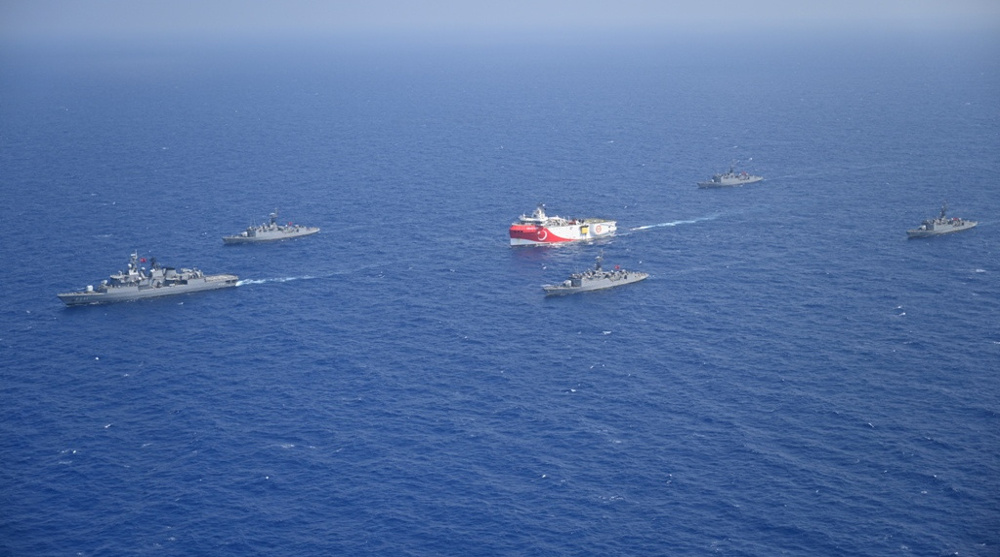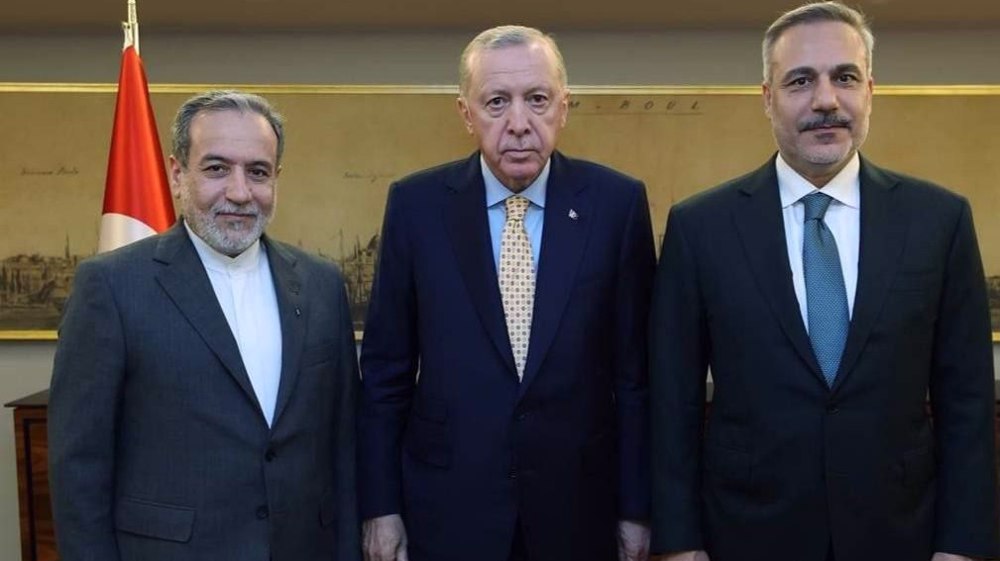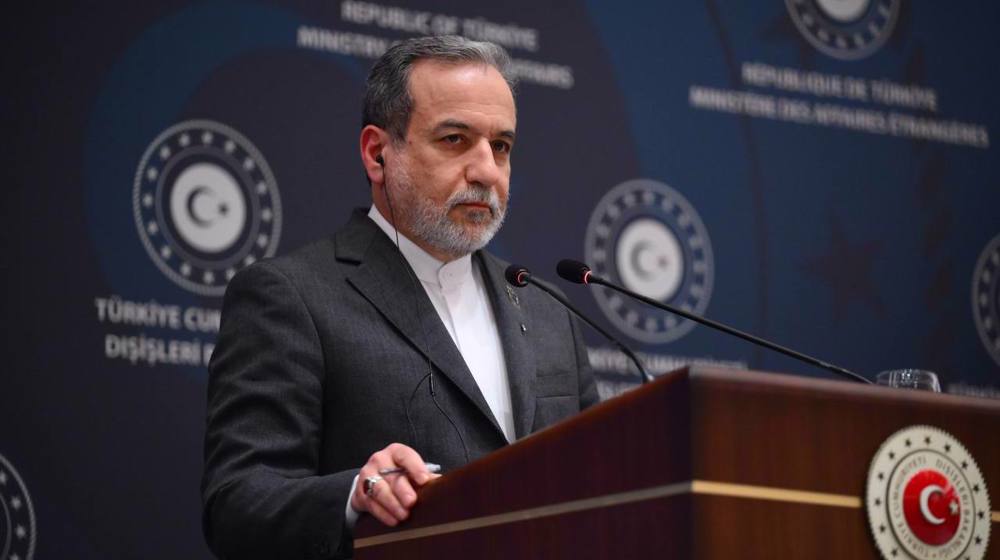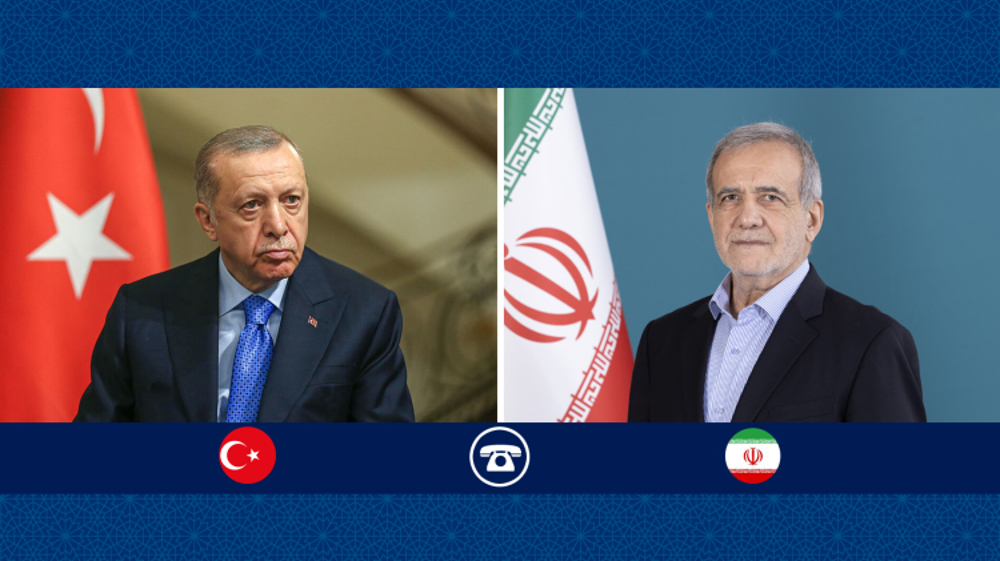Turkey once again sending seismic survey ship to disputed waters with Greece
Turkey is once again planning to send its research ship to the Eastern Mediterranean on a seismic survey mission, after hopes for deescalation of tensions with its NATO ally Greece were dashed with the European Union’s sanctions threat against Ankara.
Turkey's navy announced late Sunday that Oruc Reis, the very research ship that has been at the heart of a dispute with neighboring Greece over oil and gas drilling rights in the region, will continue its work in an area including the south of the Greek island of Kastellorizo for ten days.
Oruc Reis will be accompanied by two other vessels, Ataman and Cengiz Han, on its mission, the advisory added.
Athens reacted to the announcement on Monday, with Greece's Foreign Ministry denouncing Turkey's decision as a "direct threat to regional peace and security."
It noted that sending back the ship to disputed territory showed that Turkey was "unreliable" and urged Ankara "to recall its decision."
In August, Turkey sent the ship to survey an area between Cyprus and the Greek island of Crete in the Eastern Mediterranean Sea.
That led to an escalation of tensions, with the two NATO allies launching air and naval drills of their own in the waters.
Sovereignty and rights over the rich hydrocarbon resources in the Mediterranean Sea has long been a bone of contention between Ankara and Athens, with each side claiming greater rights over the waters around Kastellorizo.
Greece has complained that Turkey's exploration for gas destabilizes the region.
Last month, Ankara withdrew Oruc Reis from the contested waters ahead of a European Union summit, reviving hopes that the move would serve as a prelude to the launch of negotiations with Athens.
It also pulled back its drilling ship Yavuz from southwest of Cyprus last week, ahead of a meeting between President Recep Tayyip Erdogan and NATO chief Jens Stoltenberg in Ankara.
But no rapprochement was effected when Brussels, which has taken the side of Greece in the territorial row, threatened Ankara with sanctions in case of further "illegal" drilling and energy exploration in the Eastern Mediterranean.
President Erdogan expressed dismay at “unconstructive" threats, saying that the bloc “had succumbed to pressure and blackmail from Greek Cypriots and Greece despite Turkey’s good faith.”
Ankara's latest decision to redeploy the ship to the contested region comes even as Turkish and Greek foreign ministers agreed in a meeting last week to resolve the dispute through negotiations.
Cyprus has been divided into a Turkish Cypriot-controlled north and a Greek Cypriot-controlled south since a brief war in 1974, which saw Turkey intervene militarily in response to a military coup on the island that was backed by Athens.
Greek Cypriots run the island’s internationally-recognized government, while Turkish Cypriots have a breakaway state in the north — only recognized by Ankara.
UK ordered in 'milestone' court ruling to pay $570 million for colonial-era massacre
VIDEO | Defying the rubble, Gaza opens its first face-to-face school since start of war
‘Ready for next round’: Million-man rally in Yemen backs Gaza, resistance
FM Araghchi departs Muscat for Doha following nuclear talks with US
Israeli keeps killing more Palestinian civilians in Gaza amid relentless ceasefire violations
Aliyev: Azerbaijani territory will not be used for threats against Iran
Turkey arrests two on charges of spying for Israeli regime
Iran FM declares ‘good start’ as US–Iran talks conclude in Muscat















 This makes it easy to access the Press TV website
This makes it easy to access the Press TV website